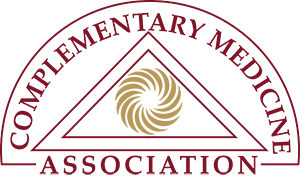About Us

The Complementary Medicine Association (CMA) is one of the leading practitioner associations in Australia. We are an independent association with no affiliations to colleges, manufacturers, or other bodies which may present a conflict of interest. The CMA is a not-for-profit practitioner association that works to promote the benefit of complementary medicines broadly for the benefit of practitioners, clients, and humanity more broadly. Our members are individuals, not numbers, and every Member always receives the utmost level of help and support.
The CMA was founded in 1985 by Bob Lucy, a highly respected figure in the Australian complementary medicine industry. Initially the association represented naturopaths, however, in early 2013, the CMA broadened its membership base to also encompass all complementary medicine Ingestive modalities and welcomed practitioners into its community that practice Homeopathy, Nutrition, Ayurveda, Western Herbal Medicine, and Chinese Herbal Medicine. With this expanded membership base the CMA evolved to become an ethical, peer group association that supports all ingestive complementary medicine practitioners, and represent its members in forums with government bodies, health funds, insurance companies, and the general public.
Additionally, we have a professional Constitution, Code of Ethics, and Public Complaints Procedure which are strictly policed and enforced. The association also has strict educational entry requirements and ongoing continuing professional education (CPE) requirements to ensure we maintain the quality and caliber of practitioners in our industry.
Our Aims
- To protect the mutual interests of its members, and support members.
- To attain full registration for qualified complementary medicine practitioners in Australia.
- To provide and maintain a professional Code of Ethics and promote professional conduct amongst complementary medicine practitioners.
- To provide advocacy and counsel in matters relating to complementary medicine in government forums.
- To establish and maintain relations with natural medicine organisations, colleges, universities, and other bodies throughout the world having the same or similar objectives.
- To create and pursue policies with the aim to unite complementary medicine practitioners of Australia.
- To educate the public as to what complementary medicine practitioners do.
- To promote a professional image for complementary medicine practitioners and their modalities to the community.


Our Mission
The purpose and intention of the CMA is to promote the science of complementary medicine and advocate for the rightful role of complementary medicine practitioners within the Australian healthcare system. We are committed to obtaining full government recognition for our members in the form of professional registration. We will set out to protect complementary medicine and its practitioners from any threat or misunderstanding and will vigorously defend and actively promote the practice and benefits of complementary medicine. Additionally, we nurture and support these complementary medicine modalities by:
- Establishing and maintaining the highest standards of professional qualification; facilitating meaningful, ongoing professional education and development.
- Encouraging and supporting research and the dissemination of knowledge on ingestive complementary medicines.
- Mentoring students and novice practitioners.
